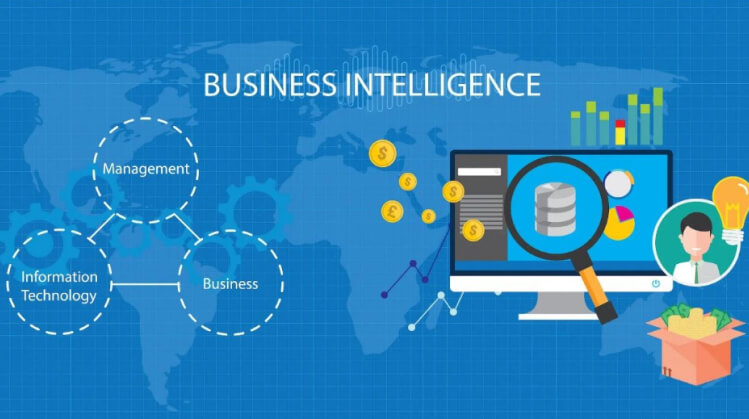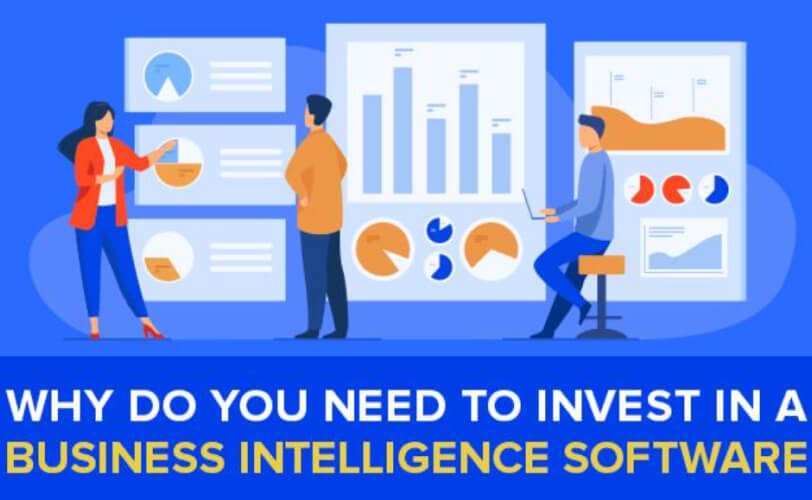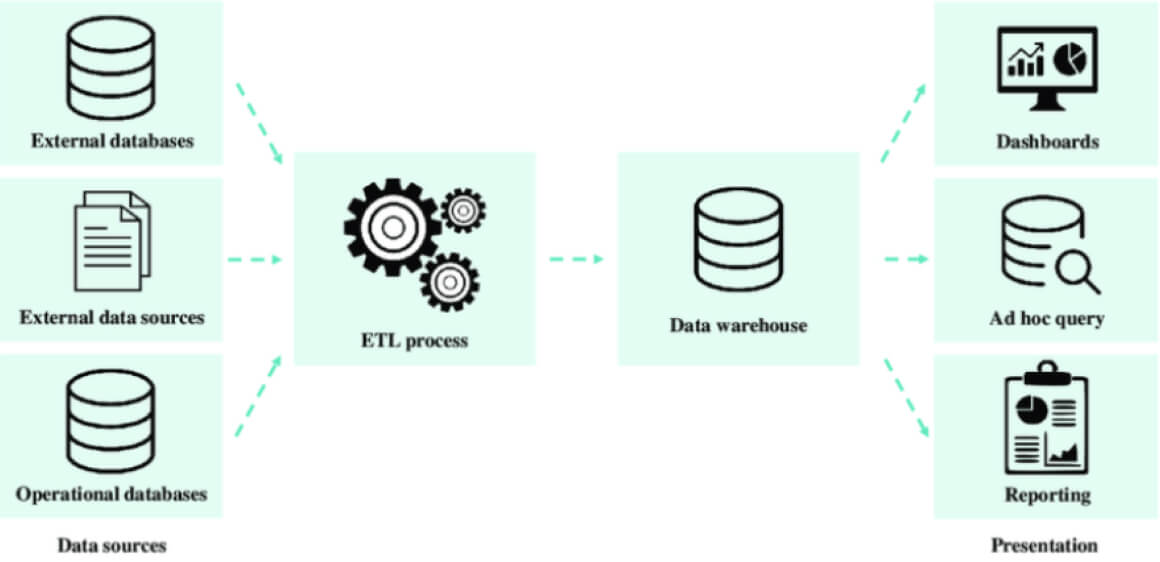What is Business Intelligence, and how its role impacts Organizational performance?
What is Business Intelligence?
Have you ever imagined that you should have an effective business tool that helps extract substantial data volumes and presents in quick presentable reports and dashboards that help draw data-driven business insights for decision-making? If yes, we are talking about Business Intelligence, the modern business tool that seamlessly transforms organizational performance, saving time and money.
The historical fact is that the author Richard Miller used the term Business Intelligence in 1865 for the first time, citing the potentiality of a banker who collected intelligence on the market to stay ahead of his competitors.
Though Business Intelligence was increasingly gaining popularity by the early 1990s among the various industries, there was still a need for its comprehensive development. Formerly, BI was primarily dependent on IT support, which hindered generating reports with more time consumption. With new innovative approaches towards its further development, Business Intelligence emerged as one of the dominant business tools that can transform businesses to be future-ready.
Business Intelligence was limited to the Business Intelligence analysts for data queries and data analysis. There arose a need to bridge the gap between the technical and non-technical users in utilizing the technology; the self-service BI applications were one of the major solutions to simplify it. The modern BI tools and applications allow users to quickly understand data and draw value-driven business insights for strategic business decision making.
Though Business Intelligence was increasingly gaining popularity by the early 1990s among the various industries, there was still a need for its comprehensive development. Formerly, BI was primarily dependent on IT support, which hindered generating reports with more time consumption. With new innovative approaches towards its further development, Business Intelligence emerged as one of the dominant business tools that can transform businesses to be future-ready.
Business Intelligence was limited to the Business Intelligence analysts for data queries and data analysis. There arose a need to bridge the gap between the technical and non-technical users in utilizing the technology; the self-service BI applications were one of the major solutions to simplify it. The modern BI tools and applications allow users to quickly understand data and draw value-driven business insights for strategic business decision making.

Why businesses need business intelligence?
Business intelligence was developed as new technology to balance the increasing data volumes and envision the future of analytics. BI tools help organize the complex data, making it more straightforward to understand and later allowing for decision-making with data-driven actionable business insights.

Few Crucial reasons explain why there is a need of BI
- Capability of gaining valuable customer insights.
- Allows better control over business and processes.
- Help drawing actionable insights for decision making.
- Increases the overall productivity across the organization.
- Availability of real-time data.
- Creates potential marketing campaigns that provide better ROI.
- Provides competitive business advantage to stay abreast in the market.
How does Business Intelligence work?
For any organization, data is the crucial factor that creates complexity in extracting and analyzing due to the lack of one single source to do the needful. The modern BI tools can connect with multi-data sources to extract the data and analyze it within a short time to be presented as reports and dashboards for the users to make business decisions strategically. Companies with conventional methods of maintaining data incur massive time consumption and delay in generating informative reports on time. With the help of a centralized database, organizations can increase productivity and efficiency by pulling substantial data volumes in minutes into understandable visual reports and dashboards, making the complex data simple.

Why Business Intelligence is important
Business Intelligence allows organizations to make strategic data-driven business decisions rather than predictions. Organized data is a vital element for any business to understand and speak the business’s overall performance by comparing the current with the historical data components to make future forecasting. With a result-oriented functional Business Intelligence in place, companies can generate simple answers for all types of complex business data questions. BI system encompasses the essential data relating to various departments of an organization like production and supply chain, providing additional insights on customer and market trends. Organizations can leverage BI to improve production with an adequate resource allocation and focus on supply chain management with continuous monitoring of regular activities for better results. The BI analytics help generates business insights to understand the prospective customer behaviour, interests, preferences, and unique buying trends to gain a positive edge over the competitors.
What Are The Types Of Business Intelligence?
- OLAP (Online Analytical Processing).
- ETL (Extract, Transform, and Load)
- Concept of Operational Intelligence (OI)
- Data Mining
- Drill Down
- Predictive Analytics
- Reporting
- Dashboards
- Visualization
Conclusion
Business Intelligence is one of the most sought new-age technologies for enterprises for efficient data analysis. Business Intelligence provides users with the flexibility and ease of accessing crucial business information through a centralized data system that encompasses the data pipeline of various organizational departments. BI help organizations to stay abreast with the data trends that pave the way, finding short term and long term strategies to set competitive performance benchmarks to achieve and make the organization future-ready, developing the capability of delivering better productivity with efficiency. One of the significant advantages for Organizations with Business Intelligence is that it supports real-time data-driven and result-oriented business decision making.
What’s Next: Explore ATS, a specialist Full-Stack Business Intelligence, Data Analytics and IT Services Consulting firm that brings significant value to your organization with its high-quality business services and providing the industry demanding solutions.
Click Here: https://aiontech.ai/